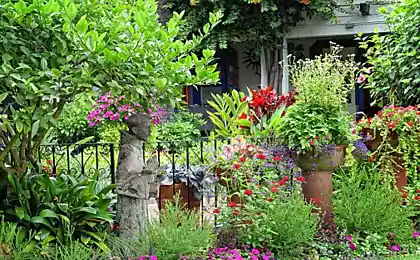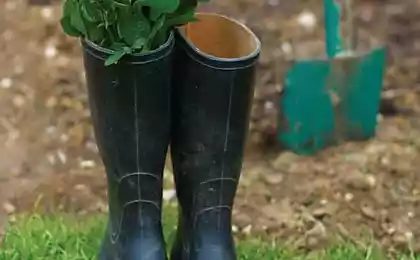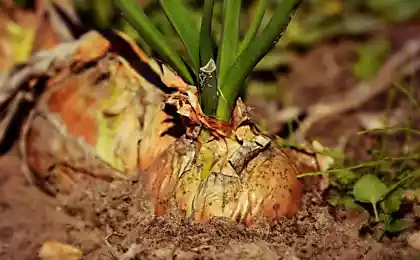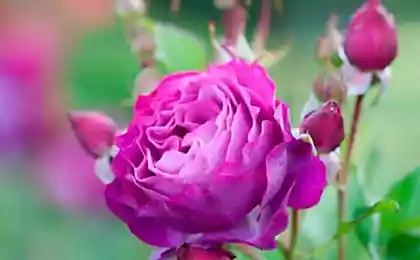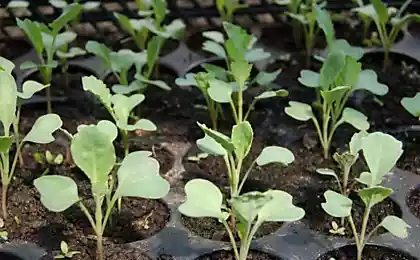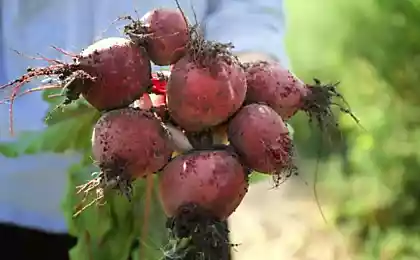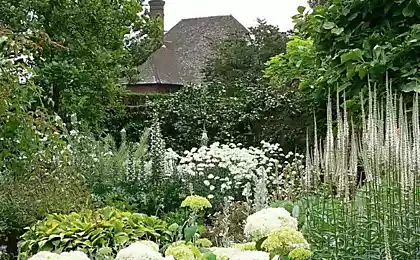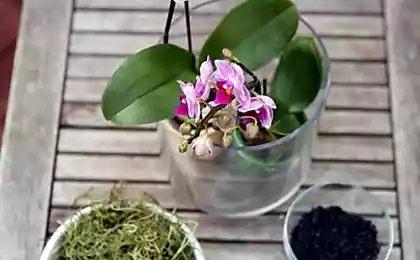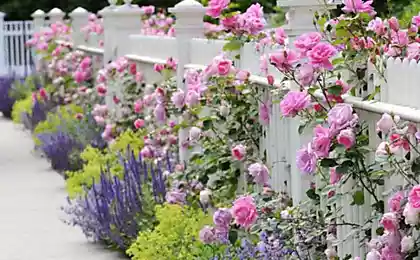143
How to Feed Roses in June to Increase Flowering
Feeding roses in the summer is no less important than spring. Like all queens, the garden queen is not only beautiful, but also very capricious.

Therefore, all the time requires undiminished attention and careful care, one of the steps of which is June feeding. To achieve abundant flowering of roses, it must be performed according to all the rules.
In the period of budding and first flowering, roses need proper nutrition. This is especially true because of the cold rainy spring, which weakened the plants.
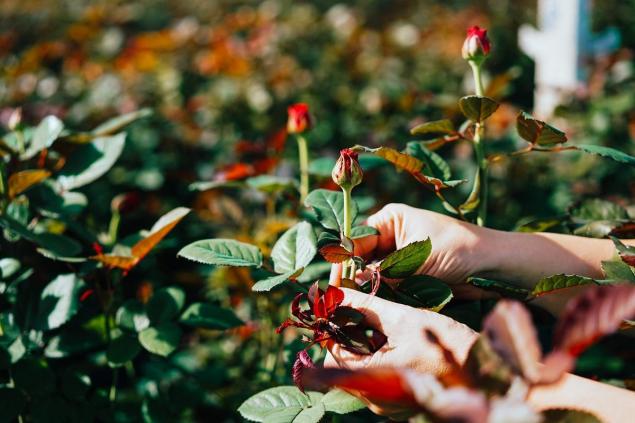
From the beginning of June, feed them every 10 days, alternating organic matter with mineral fertilizers. It is best to use potassium-phosphorus compounds (10 grams of nitrate, superphosphate and potassium sulfate per 10 liters of water).
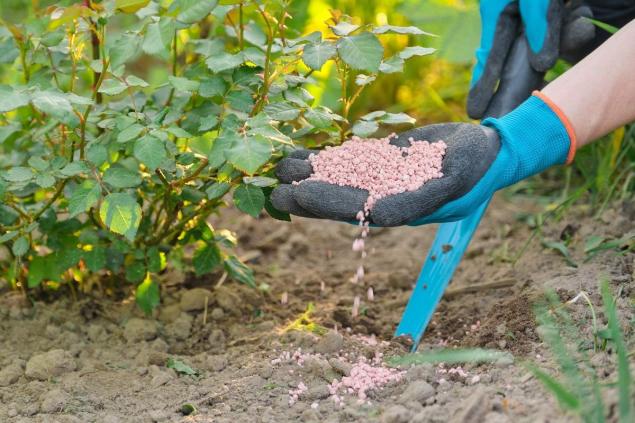
Potassium here is responsible for the general condition of the plant and is especially useful for roses during flowering and budding. Phosphorus helps form a strong root system and ensures flowering quality.
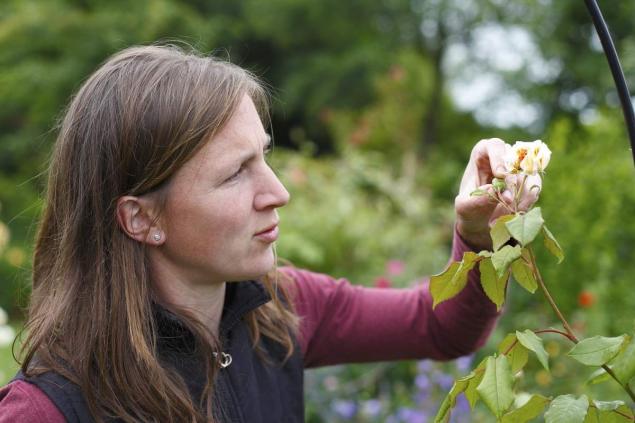
Competent feeding requires the addition of other microelements. So, magnesium is responsible for the saturation of coloring flowers, and iron, boron and manganese increase the resistance of the plant to diseases.
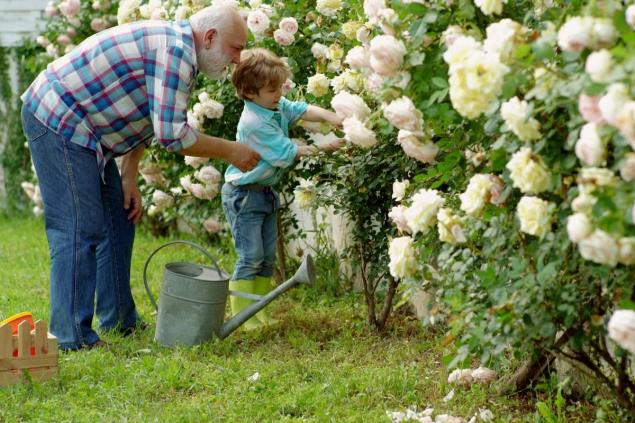
Immediately after fertilizing with mineral fertilizers, it is recommended to water the roses with an infusion of mullet (1:10), chicken droppings (1:20) or herbs. It is good to add superphosphate and ash to organic fertilizers, since there is not enough phosphorus and potassium in them.
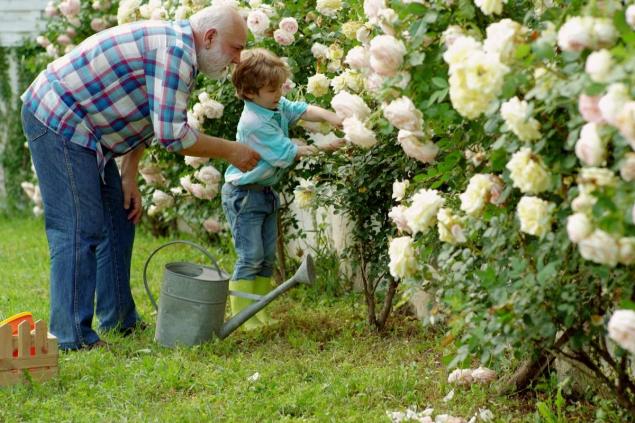
Do not forget about diseases and pests. Especially often make themselves felt black spot and powdery dew. To get rid of them, you need to moisten the bushes with water and sprinkle ash from bottom to top. It's good to flush after an hour.
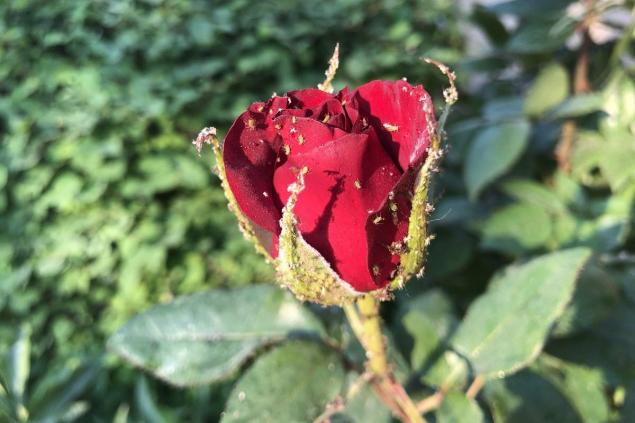
Earlier we told how to get rid of aphids without damaging the flowers. Iodine and milk, soap solution, onion husk and other natural remedies will help.
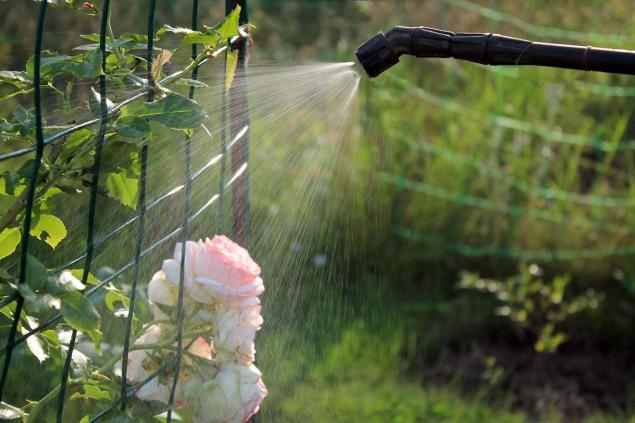
In June, roses need watering. It should be abundant, frequent watering in small doses do not give results. Watering should be under the root so that water does not fall on the leaves. If you water plants with cold water in hot weather, the root system loses its ability to absorb nutrients.

Therefore, all the time requires undiminished attention and careful care, one of the steps of which is June feeding. To achieve abundant flowering of roses, it must be performed according to all the rules.
In the period of budding and first flowering, roses need proper nutrition. This is especially true because of the cold rainy spring, which weakened the plants.

From the beginning of June, feed them every 10 days, alternating organic matter with mineral fertilizers. It is best to use potassium-phosphorus compounds (10 grams of nitrate, superphosphate and potassium sulfate per 10 liters of water).

Potassium here is responsible for the general condition of the plant and is especially useful for roses during flowering and budding. Phosphorus helps form a strong root system and ensures flowering quality.

Competent feeding requires the addition of other microelements. So, magnesium is responsible for the saturation of coloring flowers, and iron, boron and manganese increase the resistance of the plant to diseases.

Immediately after fertilizing with mineral fertilizers, it is recommended to water the roses with an infusion of mullet (1:10), chicken droppings (1:20) or herbs. It is good to add superphosphate and ash to organic fertilizers, since there is not enough phosphorus and potassium in them.

Do not forget about diseases and pests. Especially often make themselves felt black spot and powdery dew. To get rid of them, you need to moisten the bushes with water and sprinkle ash from bottom to top. It's good to flush after an hour.

Earlier we told how to get rid of aphids without damaging the flowers. Iodine and milk, soap solution, onion husk and other natural remedies will help.

In June, roses need watering. It should be abundant, frequent watering in small doses do not give results. Watering should be under the root so that water does not fall on the leaves. If you water plants with cold water in hot weather, the root system loses its ability to absorb nutrients.



